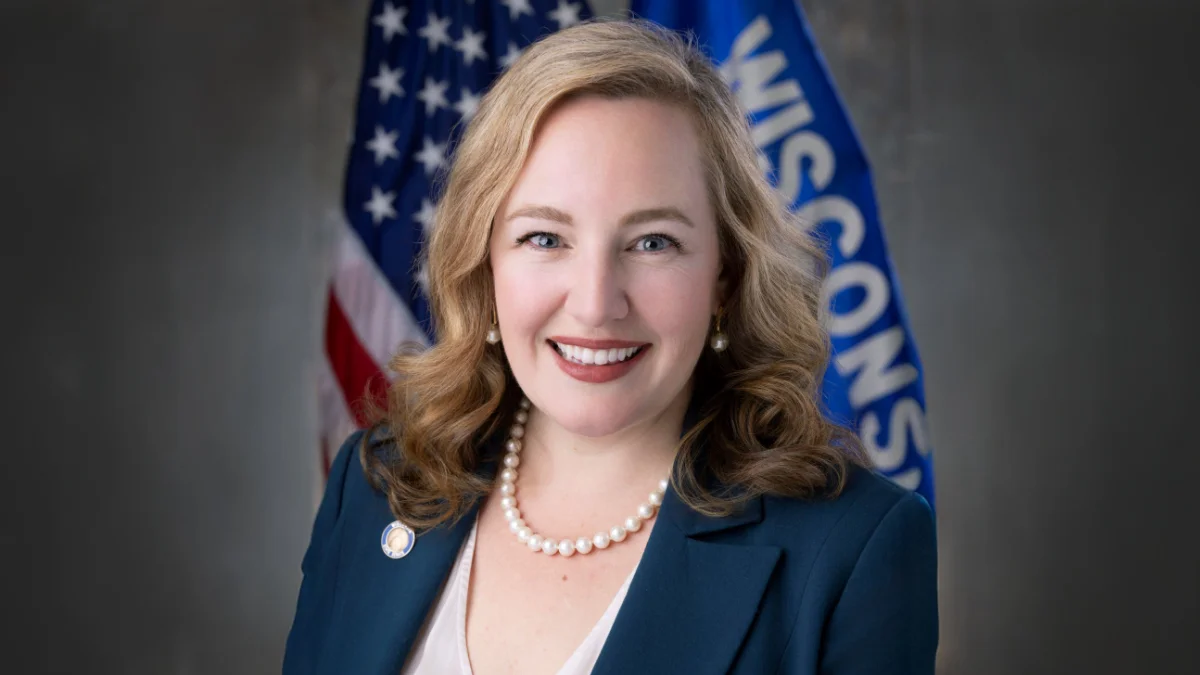Kelda Roys Wisconsin State Senator (District 26) | Official Website
Kelda Roys Wisconsin State Senator (District 26) | Official Website
According to the Wisconsin State Legislature's official website, the bill was described as follows: "requiring vehicles to stop for pedestrians at certain intersections and crosswalks".
The following is our breakdown, based on the actual bill text, and may include interpretation to clarify its provisions.
In essence, this bill mandates that vehicle operators must stop and remain stopped for pedestrians, personal delivery devices, bicyclists, and riders of electric scooters or electric personal assistive mobility devices at intersections or crosswalks until these entities have fully crossed the roadway. Previously, drivers were only required to yield the right-of-way by slowing down or stopping if necessary to avoid endangering or interfering. The provision applies to both controlled intersections with traffic signals and uncontrolled ones. Additionally, the bill specifies that no abrupt crossing into a vehicle’s path by pedestrians or delivery devices is allowed if it would make it difficult for the vehicle to stop. This change will be effective for offenses committed from the bill's enactment date.
The bill was co-authored by Representative Lee Snodgrass (Democrat-52nd District), Senator Tim Carpenter (Democrat-3rd District), Senator Kristin Dassler-Alfheim (Democrat-18th District), Senator Dianne H. Hesselbein (Democrat-27th District), Senator Melissa Ratcliff (Democrat-16th District). It was co-sponsored by Representative Clinton M. Anderson (Democrat-45th District), Representative Mike Bare (Democrat-80th District), and Representative Brienne Brown (Democrat-43rd District), along 20 other co-sponsors.
Kelda Roys has authored or co-authored another 47 bills since the beginning of the 2025 session, with all of them being adopted.
Roys graduated from New York University in 2000 with a BA and again in 2004 from University of Wisconsin Law School with a JD.
Roys, a Democrat, was elected to the Wisconsin State Senate in 2021 to represent the state's 26th Senate district, replacing previous state senator Fred Risser.
In Wisconsin, the legislative process starts when a senator, constituent, group, or agency proposes an idea for a bill. After drafting, the bill is introduced, numbered, and referred to a committee for review and public input. If approved, it moves through three readings and votes in both the Senate and Assembly. Once both chambers pass the same version, the bill goes to the governor, who can sign it, veto it, or let it become law without a signature. Only a small share of bills introduced each session ultimately become law. You can learn more about the Wisconsin legislative process here.
| Bill Number | Date Introduced | Short Description |
|---|---|---|
| SB345 | 06/27/2025 | Requiring vehicles to stop for pedestrians at certain intersections and crosswalks |
| SB344 | 06/27/2025 | A refundable income tax credit for bicycle purchases and making an appropriation. (FE) |
| SB342 | 06/27/2025 | Coverage of treatment for mental health or substance use disorders under health insurance policies and plans |
| SB322 | 06/12/2025 | A Department of Children and Families program to make payments to child care programs, granting rule-making authority, and making an appropriation. (FE) |
| SB314 | 06/04/2025 | The pupil participation limit in the state parental choice program |
| SB301 | 06/02/2025 | Rehired annuitants. (FE) |
| SB271 | 05/21/2025 | Right to bodily autonomy, elimination of certain abortion-related regulations, and coverage of abortion under certain health care coverage plans. (FE) |
| SB268 | 05/20/2025 | Prohibiting corporal punishment in public and private schools |
| SB247 | 05/09/2025 | Local and private regulation of accessory dwelling units. (FE) |
| SB195 | 04/14/2025 | Serving maple syrup in a public eating place |
| SB142 | 03/21/2025 | Algorithmic software for residential housing, and providing a penalty |






 Alerts Sign-up
Alerts Sign-up